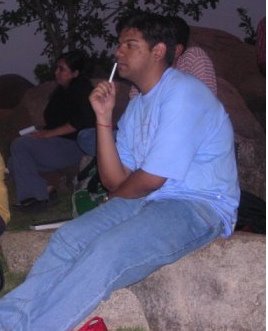Kitab Festival: An afterthought
Not too long ago when Naipaul had won the Nobel, Times of India had an instant poll on how many had read a Naipaul before his getting the Nobel. Interestingly, more than the majority had responded in the negative. I know these instant polls give weird sporadic results but somehow they do dish out some bitter truth that reflects the whims and fancies of the Indian junta.
The just concluded Hindustan Times Kitab Festival is a case in the same effect. The festival brought together an entir jamboree of authors, writers, journalists, columnists to discuss the “effect of South Asian Diaspora on literature in the subcontinent” and claimed to be for everyone. And to add to the glamour quotient they had Goldie Hawn amidst those literatures’ and intelligentsia to give a talk on here recent spiritual memoir.
“It’s non-bureaucratic and open to public.”
The only good thing about Kitab was the fact that it was not a sarkari festival like the Neemrana fest where even the media was just allowed to press an ear to the keyhole. But still why it didn’t had a U R Ananthamurthy or a Mahasweta Devi who would have connected better with the audience is open to question. And this brings us to the more pertinent question of us having read any book in an Indian language other than English. Are these festivals aimed at
fiction-writers-turned-social-commentators “pandering to the West”?
An article in Business Standard eulogises Kitab as, “Kitab allowed authors and readers to meet outside an invisible cordon sanitaria. It made conversations happen.” Another blog confesses how the best conversations happened outside the discussions rooms.
The idea, it seems, has arrived but is yet to take the shape. Another article in Outlook talks about how a hajjar litfests happen in the UK every year yet the most popular of them is the ticket-ed Hay Festival held in a small town on the Welsh border. Just a cursory visit to the website of the festival speaks volumes of how perfectly is the festival marketed and how big a success it is every year even though it is a ticket-ed event. Selling tickets may not be the best idea to make the litfests popular but it has tasted success and has become a trend in the West. And then there are cities like Bangalore where I have observed there is a culture of paying for entertainment and tickets will sell well.
So, let the ink stain the papers and let conversations happen.
The just concluded Hindustan Times Kitab Festival is a case in the same effect. The festival brought together an entir jamboree of authors, writers, journalists, columnists to discuss the “effect of South Asian Diaspora on literature in the subcontinent” and claimed to be for everyone. And to add to the glamour quotient they had Goldie Hawn amidst those literatures’ and intelligentsia to give a talk on here recent spiritual memoir.
“It’s non-bureaucratic and open to public.”
The only good thing about Kitab was the fact that it was not a sarkari festival like the Neemrana fest where even the media was just allowed to press an ear to the keyhole. But still why it didn’t had a U R Ananthamurthy or a Mahasweta Devi who would have connected better with the audience is open to question. And this brings us to the more pertinent question of us having read any book in an Indian language other than English. Are these festivals aimed at
fiction-writers-turned-social-commentators “pandering to the West”?
An article in Business Standard eulogises Kitab as, “Kitab allowed authors and readers to meet outside an invisible cordon sanitaria. It made conversations happen.” Another blog confesses how the best conversations happened outside the discussions rooms.
The idea, it seems, has arrived but is yet to take the shape. Another article in Outlook talks about how a hajjar litfests happen in the UK every year yet the most popular of them is the ticket-ed Hay Festival held in a small town on the Welsh border. Just a cursory visit to the website of the festival speaks volumes of how perfectly is the festival marketed and how big a success it is every year even though it is a ticket-ed event. Selling tickets may not be the best idea to make the litfests popular but it has tasted success and has become a trend in the West. And then there are cities like Bangalore where I have observed there is a culture of paying for entertainment and tickets will sell well.
So, let the ink stain the papers and let conversations happen.
Labels: Books


0 Comments:
Post a Comment
Subscribe to Post Comments [Atom]
<< Home